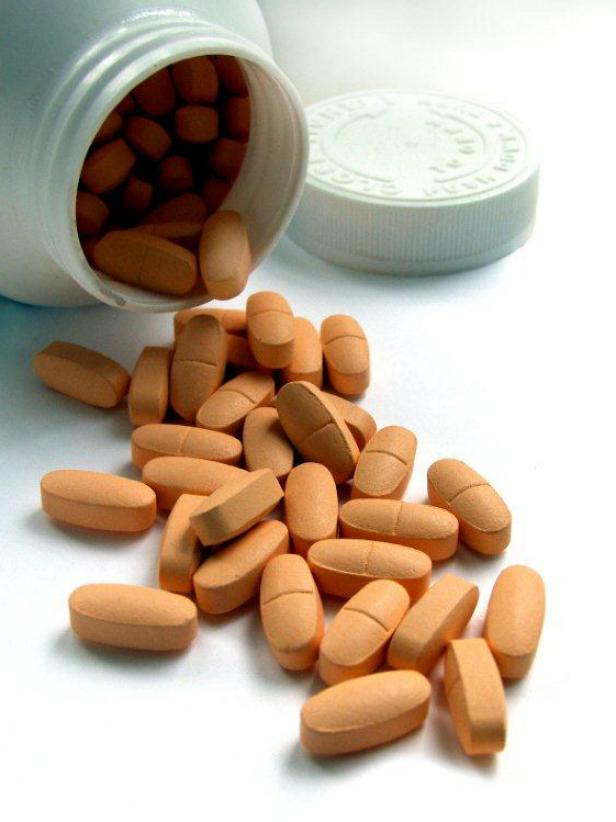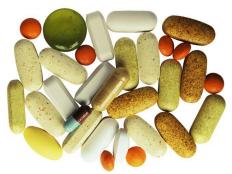Supplement Savvy: More Popular Supplements

While they seem harmless, multivitamins can be a cocktail of dangerous ingredients including toxic amounts of vitamins and minerals, herbs and other substances that may cause side effects and interact with medications. If food allergies, dietary restrictions, or pregnancy warrant taking some extra nutrients from a multivitamin, look for one that only contains vitamins and minerals. Beware of bizarre herbs, "proprietary blends" and other ingredients you don’t recognize. Pass on products that have more than 500% of the Recommended Dietary Allowance (RDA) listed on the label.
Becoming increasingly popular in recent years, omega-3 fats play an important role in eye and skin, heart and neurological health. The most beneficial kinds of omega-3 fats are found in fatty fish (like salmon, sardines, and tuna). Since most folks don’t eat enough of these types of seafood, a supplement may be warranted. When shopping for fish oil, choose one with the highest amount of EPA and DHA – the types of fats associated with all the health benefits. Look for a brand that derives their product from low-mercury fish like Nordic Naturals. Omega-3 supplements from sea algae are a new craze and offer an alternative for those who follow a plant-based diet. The amount of EPA and DHA in algae supplements is often considerably less than you’ll find in a fish oil product.
Promoted to alleviate joint pain, this is a popular supplement among Baby Boomers. While studies show that taking glucosamine supplements for up to 24 weeks is safe, there’s not a whole lot of research to support that it’s actually effective. Studies have found a large amount of variation in the quality and quantity of across brands so consumers should do their homework (see shopping tip below). There’s anecdotal evidence on both sides, but the supplements still may not be worth the money. Supplementation is not recommended in combination with prescription blood thinners. Those with shellfish allergies should stay away from supplements that contain chondroitin, which is commonly derived from shellfish.
Lots of hype surrounds these pills taken for a laundry list of ailments including congestive heart failure (CHF), high blood pressure, diabetes, Parkinson’s disease and chronic fatigue syndrome; it's also taken to enhance athletic performance. This is one of those supplements that many folks take just because they heard it was “good for them” -- taking a supplement without being sure why is never a good thing! CoQ10 can be found naturally in the body where it works as a cell-protecting antioxidant, but that’s no guarantee that more from a supplement will have an increased benefit. While it remains controversial, a limited amount of research has found that CoQ10 may help CHF and high blood pressure when taken in combination with other treatments (but that’s up to a doctor to decide). CoQ10 supplements can also cause a drop in blood pressure when taken in combination with fish oil and some herbal supplements. There’s also a risk of negative interactions with Red Yeast Rice and vitamin K.
Branched chain amino acids (BCAAs) are the three types of protein building blocks primarily responsible for muscle function (leucine, isoleucine and valine). This explains why you’ll see BCAAs in pills, bars and shakes marketed to athletes to enhance performance and build muscle. Side effects are limited (muscle fatigue and stomach upset are possible symptoms of taking too much). There’s some research to support that BCAA supplementation may reduce muscle fatigue and modestly boost performance but supplements shouldn’t replace protein-rich foods which offer a much greater benefit to active individuals.
Shopping Tip: Before you buy a supplement of any kind, check out approved brands from the United States Pharmacopeia – an independent testing company that verifies the quality of supplements. This won’t ensure that a supplement is safe for anyone to take (toxicity, allergies and interactions can still occur), but at least you can feel better knowing that what you see on the label is what’s in the bottle.
































